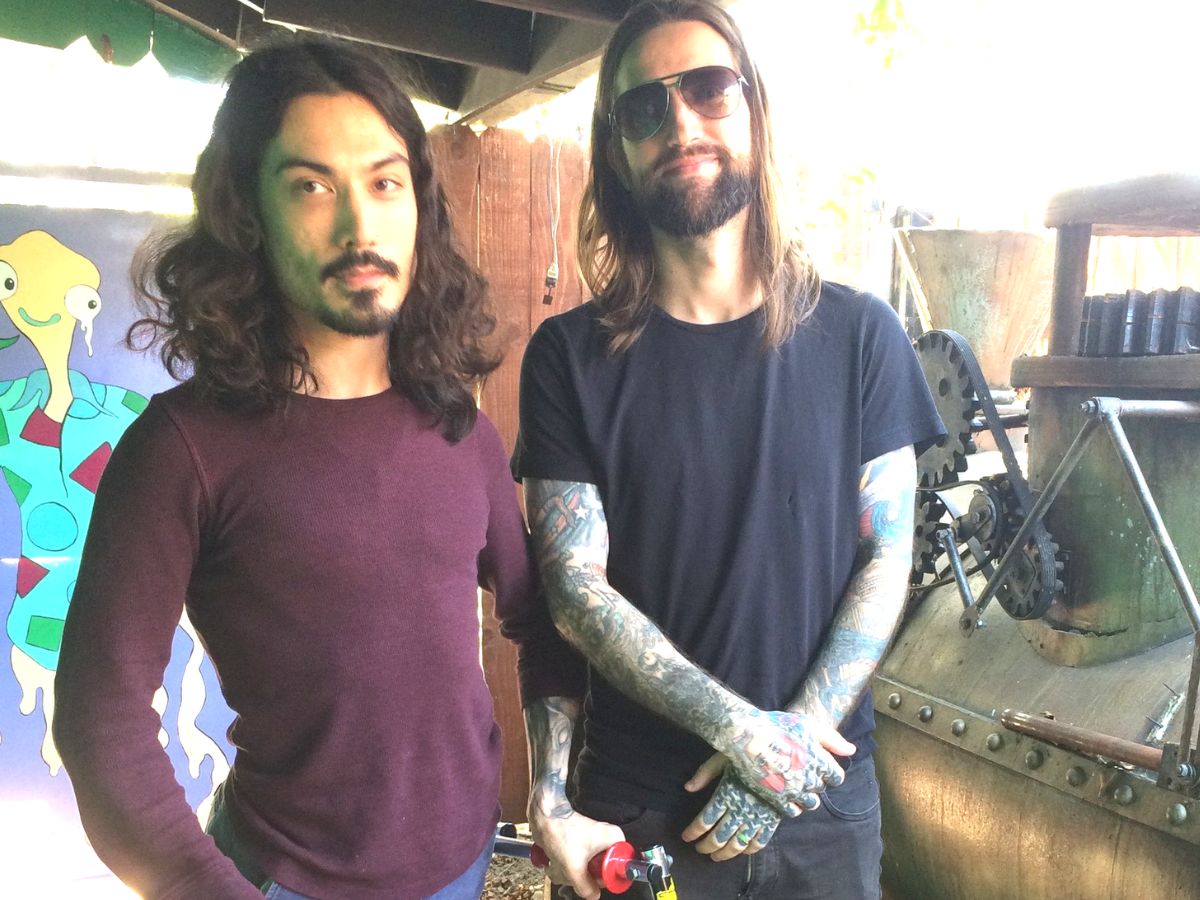We all know Keith Buckley. The renowned frontman who marshaled Every Time I Die from the outskirts of Buffalo, NY to the corners of the globe, transforming the band over the course of two decades into an international powerhouse. From the early days of their breakout album Hot Damn! to their unforgettable Halloween performance on Jimmy Kimmel Live, to their forthcoming eighth studio album – Buckley and co. have left their mark on the world of heavy music. And it all started with books.
In fact, Buckley’s career in music stemmed out of his love for words. Ever since he was a teenager he wanted to be an author. Last December he made the leap towards his childhood ambitions, publishing his debut novel Scale, a semi-autobiographical tale that follows the journey of 31-year-old guitarist Ray Goldman. It’s about his struggle to find balance in his dysfunctional life, and most of it was written by Buckley on the road and inspired by his own death and resurrections. “[Ray’s] not reading the signs correctly… He’s too caught up in himself.”
So naturally we were curious. What’s it like going from accomplished singer to budding author? Is there a difference between crafting lyrics and penning prose? What spurred his love for literature?
We sat down with Keith to answer these questions, and get insight into the mind of one of punk rock’s beloved singers.
PS – You can buy his book on Amazon.
We know you’re in a hurry — here’s a complete rundown of the interview:
00:03 – Fingerprints of the Gods is a book that was a game changer for Keith. It was the first book in his early teens that made him realize what we were learning in school wasn’t entirely right. When he read it again a couple years ago, it took on a completely different meaning. (Music can do that too)
01:40 – Keith always wanted to write novels since he was 14. His dad was a big reader, so whenever Keith wanted to do things like play sports, his dad would say read this book. They were tools to improve his thinking, which in turn improved his skills. Favorite authors growing up: Jorge Luis Borges & other Argentinian writers.
02:35 – “I really liked the idea that authors could be really famous and rich, and you had no idea what they looked like.” That’s what music was for Keith too before the internet. He didn’t know what any singers looked like until he saw them in magazines. “Discovering what these people were behind that was a big deal to me.”
03:15 – Keith discovered his love for music through his love for words. The Beatles: everything they put out was like an audiobook to him. “These are scenes out of a novel.”
03:51 – How he transformed his thinking and unraveled what he learned growing up to see the world how it actually is. “There has to be some sort of main event in your life that turns that switch for you.” He was given Hermann Hesse’s book Demian (who is one of his favorite authors) when he was 19 or 20, but didn’t think much of it. Years later after he got into meditation, he learned that the book was a very transcendent story that he couldn’t grasp when he was younger. “It has to be a very personal affair in order for you to have that switch flipped.”
05:27 – History is all subjective and how you choose to interpret the past. I mention that Keith check out Paul Graham’s essays.
06:55 – Being on the road all the time led him to practice meditation in 2008. “There’s only so much that drinking can do for you.” He’s the kind of person that does all or nothing, so he dove head first into it by taking courses, reading literature, and even tracked down a certified meditation teacher. It was a new birth.
08:21 – At first he thought meditation was some hippie bullshit. Then he learned that it’s basically designed that way to keep people out who aren’t willing to put in the work. This is a good metaphor for life.
09:40 – He wrote Scale mostly on the road. Meditation helped quiet his mind for him to write the book.
11:02 – Scale is Ray Goldman’s hero’s journey — which is divided into three stages: departure, fulfillment and return (for more about the hero’s journey, see Joseph Campbell and Nietzsche’s “Three Transformations“). Except Ray doesn’t make it to the final stage. He’s too stuck in his head, dealing with fear and getting put off course. Departure and return is a major theme in Keith’s life, always having to leave for tour and return home.
12:08 – Death & resurrections. Keith talks about his daughter and how he stopped drinking entirely.
13:20 – Ray swims against the current of life. His struggle is internal, and it doesn’t have to be that way at all. “He’s not reading the signs correctly… He’s too caught up in himself.” He thinks he’s the only person in the world with the same problems.
14:19 – You’re not a special snowflake, but you’re so much more powerful than you think you are.
15:08 – Keith has been writing lyrics for over 20 years. Does writing a book require a different skill set? With music you have the parameters set for you, with a book not so much. So figuring out the timing was one thing he had to learn to do.
16:00 – The parallels between the publishing industry and music industry are there, but not necessarily in bad ways. “In the literary world, I’m the band that plays before doors.”
17:13 – Dealing with criticism with Every Time I Die is way different than dealing with criticism as an author. “I don’t have my guys there to make noise if I have nothing to say… With a band not all the attention is on you because everyone is important.”
18:38 – One piece of bad advice people gave Keith is to never give up. Sometimes you should give up. The key is to know what specifically to give up on, and when to give up on it. There’s this book by Seth Godin called The Dip that addresses this subject. “Don’t think that quitting is a bad thing ever.”

